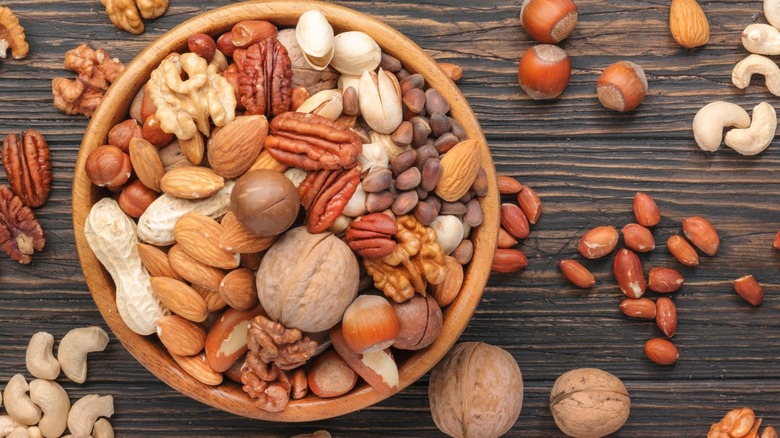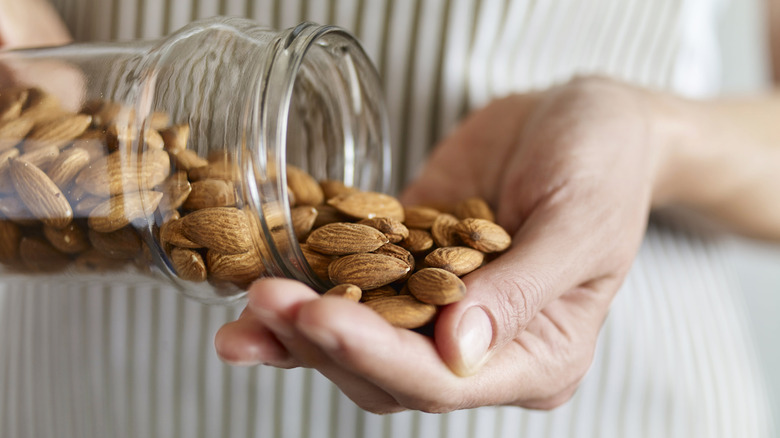The Biggest Red Flag You Should Avoid When Buying Nuts
In the world of snacking, nuts have earned their place as a beloved treat. According to the Mayo Clinic, they're packed with essential nutrients and healthy fats, making for a delicious snack option. When purchasing nuts, however, one red flag to look out for is the addition of oil. It might sound crazy to put oil in a food that already has natural oils in them, but it can be an all-too-common ingredient in your favorite snack.
The reality is that not all nuts are created equal. While some companies opt to maintain the integrity of the natural nut flavors during the roasting process, others may introduce additional oils to enhance the flavor and texture. These sneaky oils can include canola, peanut, and sunflower oil. Though seemingly innocuous, these oils can bring unwanted expenses and unnecessary calories.
Fear not, dear nut lovers! Allow us to introduce you to their superior cousin, the dry-roasted nuts. Their lack of added oils makes them an arguably better option, since they already have natural oils present and have slightly lower calories. This can provide that satisfying crunch without all that, well, greasiness.
But what about just eating raw nuts? These may be better on your sodium levels, but they are actually harder to digest and could cause bloating, according to a 2009 study published in Food Biophysics. So, when it comes to enjoying the ultimate snacking experience, avoid all those extra oils. Run toward your favorite dry-roasted brand instead.
Another reason why added oil in nuts isn't too great
Did you know the presence of oil in nuts can be a double-edged sword, contributing to both their enticing flavor and their susceptibility to spoilage? While nuts contain natural oils that enhance their taste and texture, these same oils also can cause them to spoil faster. This is especially true if they are also going through the additional step of being oil-roasted.
So, what happens when these nuts reach their final days? Unsaturated fats, found in nuts and added oils, are easily prone to oxidation when exposed to air, light, and heat. The moment this process begins, it's a one-way ticket to nut rancidity. Dreaded oxidation transforms the nuts' sensory delights into an unappetizing experience. Once these nuts spoil they can trigger reactions like digestive discomfort. And if you have consumed nuts from a bad batch, stop, drop, and roll them right out the door.
How can one avoid this nut spoilage? Well, follow smart tips for storing your nuts to keep them at their freshest. By utilizing tightly sealed containers, guarding against the entry of air and moisture, and storing them in a cool, dark place, you can shield your nuts from any spoilage. So, whether you're going nuts for almonds, pecans, or cashews, keep these tips in mind. Happy nut hunting!

